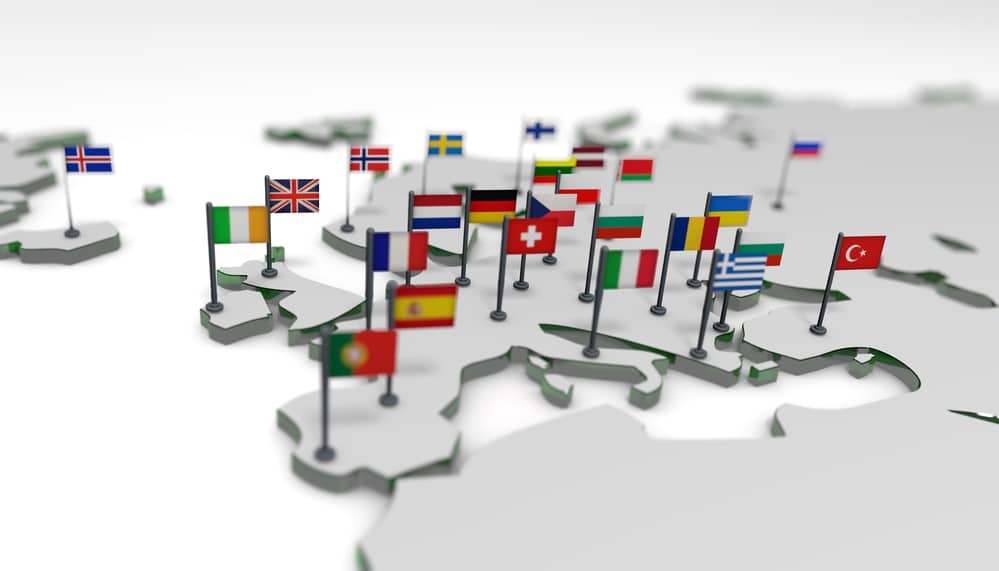Europe’s parliaments are facing chronic instability. Indecisive elections and weak governments are now the norm. The challenges of mass migration are empowering anti-immigrant parties that many other parties won’t work with, making it hard to form governing coalitions. At the same time, the growth of the internet and collapse of legacy media have harmed “traditional” parties, leading to an array of smaller parties to getting more votes. The personalization of social media has created a situation where small parties with eccentric, niche political views can reach voters who share their sentiments, to which libertarians might say, “Now you’re talking my language.”
Look at the controversy over the recent election in Spain, where the conservative People’s Party was three votes short of forming a government. Instead, the socialist Prime Minister Pedro Sanchez formed a party in alliance with the far-left Sumar coalition—which was clearly formed at a crack-pot convention—and the support of regional secessionist parties. Election rules vary a lot by country, but in all forms, especially with “joint lists” and coalitions, it is much easier for small parties to receive representation in parliaments than in the United States Congress, and for their members to have influence once they get there.
Further, ministerial positions are commonly promised to small parties who help form governments. Libertarian parties in European countries could leverage having only a few parliamentarians into real power. It would require pragmatism and targeting Europe’s political culture, but with some work, Europe’s libertarians, such as they are, could get into positions of power and have a positive, if modest, impact on human liberty.
Mass migration is the top political issue in Europe. Though libertarians have always been divided on immigration, it is clear what is going on in Europe isn’t working and is headed towards disaster. The traditional parties have done much to cause the problem and lack a solution. At the same time, a middling course simply means it will continue. However, libertarians do have some good answers without the same drawbacks as anti-immigrant parties.
We can be sure that there are many voters in Europe who are repelled by the hard-line anti-Islam stance of politicians like the Netherland’s Geert Wilders, who just came in first in the Dutch election, but who also believe the problem of immigration requires a realistic solution. With social media, it is possible to reach voters who want policies that both solve the problem but are less hateful. Libertarians can capitalize on this in three primary ways, while going along with some conventional immigration enforcement policies.
The first libertarian policy to promote is opposing regime change wars such as those against Libya’s Muammar Gadaffi, which have had a major impact on destabilizing countries immigrants come from or travel through. A policy of opposing military intervention in Africa can be sold as a key to ultimately stopping mass migration. The bigger problems driving immigration are economic. Libertarians can advocate for reducing regulations on direct investment in Africa, which would help economic growth match the continent’s growing population. However, Europe also faces a big problem where its native population is not growing, just as Africa’s population grows rapidly.
Unfortunately, Europe does need more workers to support the elderly within their society—both financially and by providing services. Europe’s over-regulated and rigid economies prevent integration and the necessary economic growth to assimilate immigrants. At the same time, people from middle class backgrounds are struggling, and it discourages them from having kids. This is a well known demographic paradox where the poor have more children but the middle class won’t have children if they feel poor, and in both cases more economic opportunity can increase birth rates among native Europeans while reducing them among immigrant communities already in Europe. In short, European nations need a freer economy, but freer from the bottom up, making it easy to start businesses and work trades.
It may seem dubious that a libertarian party in Europe could accomplish anything by becoming a small member of a political coalition. However, most government is composed of mundane-seeming ministries which have power over important things that people don’t think much about at election time. A prime example is the repeal of net neutrality in the United States, where FCC Chairman Ajit Pai was able to remove new restrictions on internet commerce despite hysterical opposition from much of the media and political class.
As Europe faces constant and severe challenges to freedom, such as Ireland’s proposed new internet censorship law where you could be charged for possessing “hateful” memes, there is a great need for libertarians in these positions. Some of the most harmful restrictions on freedom are technical matters restricting the economy or civil liberties. The way that weak parliamentary governments work, the prime minister would have to give libertarians in government a free hand over their area of authority, or else face a confidence vote. This is how the statists enact some of the worst policies, and principle clearly applies in the opposite direction.
American libertarians usually don’t think too much about Europe except as an example of what to not do, but in reality they have a system which gives libertarians a much greater chances to have an impact. Many libertarians would question the principle of supporting the formation of a government that is bad on major issues, but one way or another such a government will ultimately form; the difference is that in a parliamentary government it’s easier to take an “If you can’t beat ‘em, join ‘em” approach without being corrupted or compromised.
Europe faces a difficult future and voters will respond to solutions that work but also don’t take all of their freedom. Europeans would have to do it for themselves, but if consistently pro-liberty parties in Europe can form and get a few percentage points of support, they could have a real and positive impact.
































